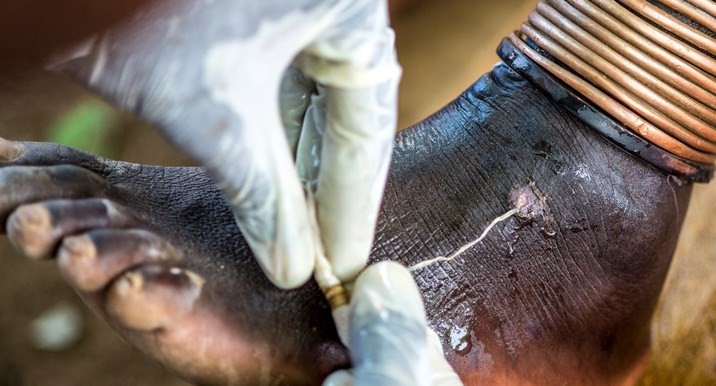Local authorities in Uror County of Jonglei State have appealed for the provision of access to clean drinking water through the drilling of more boreholes, as the county recorded a new case of Guinea Worm Disease (GWD).
Adura Morris, a senior program officer at the Carter Center, on Tuesday told Radio Tamazuj, “On August 6, we confirmed a case of Guinea Worm Disease (GWD) in Pieri Payam, Uror County of Jonglei State. The case involved a 13-year-old young lady. The worm was first detected on 23 July, and then it was removed and sent to Juba”
Dr. Kuol Kok, the county health director, said they are alarmed by the parasitic disease case as the inhabitants of Uror have no access to clean drinking water.
“Many people in Uror drink from open water sources. For this reason, the locals are predisposed to the disease. We need boreholes because guinea is obtained from water,” he said.
For his part, Tang Chatim, the Uror County commissioner, appealed for support, saying the 2013 war rendered many boreholes inoperative, forcing the locals to rely on untreated surface water for domestic use.
“In a whole Payam like Pieri, you may get only one or two boreholes for the entire population. The rest are not operational because there has been no maintenance since 2013. So, I am appealing to the well-wishers to support us,” Commissioner Chatim said.
Meanwhile, Carter Center’s Adura Morris, further pointed out that health education campaigns are ongoing to educate the public on the disease.
“For us on the ground, we are treating the water sources, we are moving around giving out water filters, and creating awareness. For the locals, we need them to boil water before drinking and those with signs should be kept away from water sources,” he advised.
GWD, also known scientifically as Dracunculiasis, is an infection caused by the parasite Dracunculus medinensis and is clinically distinguishable by fever, diarrhea, itchy pains, swelling, and blisters at the site where the worm emerges.
The parasitic disease can be controlled by drinking clean water and isolating those infected from water sources.




